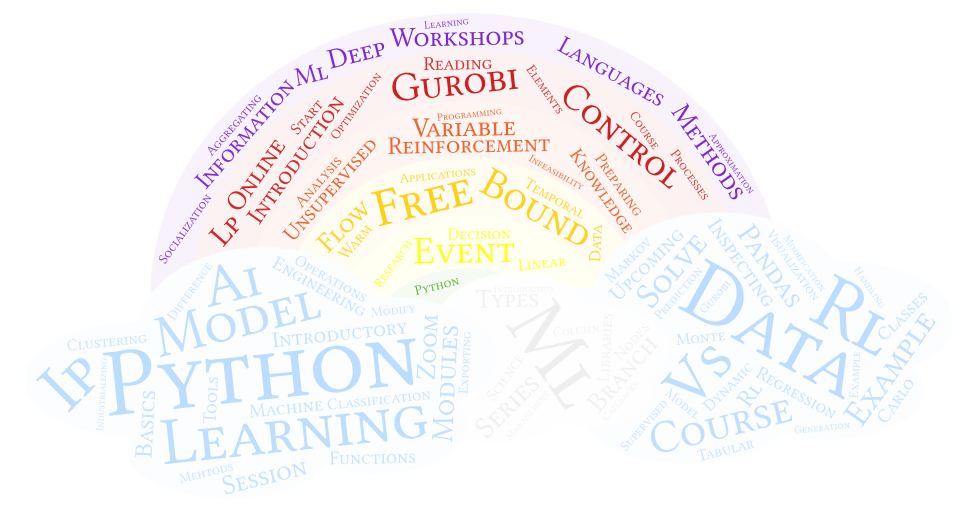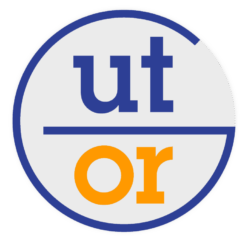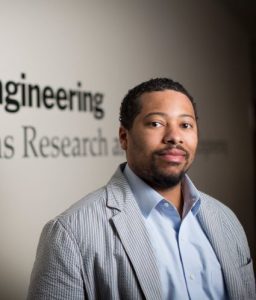
Join us for the upcoming online event, a series of workshops covering various topics in AI and optimization. The courses are introductory and no prior knowledge is assumed. Also, you will be entered in a random draw to win one of six $25 gift cards. Full information on the courses can be found below. All courses will be followed by a 30-minutes socialization and Q&A session. Registration is free but required for all participants. Before the start of each course, a Zoom link will be sent out to the email provided in the registration form.
Click here for registration.
Python Basics
October 19th at 5-6 pm EDT (GMT -4)
Instructor: Moira MacNeil (Email)
Topics:
-
- Introduction to dynamic languages
- Variable types
- Flow control
- Functions, modules, and classes (including some useful existing modules)
Data Engineering in Python
October 20th at 5-6 pm EDT (GMT -4)
Instructor: Aida Khayatian (Bio)
Topics:
-
- Python libraries for data analysis
- Reading data
- Inspecting and aggregating data with Pandas
- Exporting data with Pandas
Data Science in Python
October 21st-22nd at 5-6 pm EDT (GMT -4)
Instructor: Javad Soltani Rad (Bio)
Day 1 topics:
-
- Data visualization in Python
- Introduction to Machine Learning (ML)
- Preparing data for ML models
- Classification example in Python
Day 2 topics:
-
- Regression example in Python
- Unsupervised Learning (clustering) example in Python
- Introduction to Deep Learning
- Python tools for industrializing ML applications
Reinforcement Learning
October 26th-27th at 5-6 pm EDT (GMT -4)
Instructor: Peyman Kafaei (Bio)
Day 1 topics:
-
- Reinforcement Learning (RL) vs Supervised/Unsupervised Learning
- Introduction to RL
- Markov decision processes
- Elements of RL
Day 2 topics:
-
- Model free prediction and control
- Monte Carlo methods
- Temporal difference learning
- Tabular mehtods vs approximation methods
Operations Research in Python
October 28th-29th at 5-6 pm EDT (GMT -4)
Instructor: Maryam Daryalal (Bio)
Day 1 topics:
-
- Install and setup Gurobi in Python
- Solve a linear programming model with Gurobi
- Input/output management
- Model modification
- Warm start for LP/IP models
- Handling infeasibility
Day 2 topics:
-
- Branch & bound for IP models
- Callbacks in branch and bound
- Access to information of nodes while solving
- Modify the model during solve
- A sneak peek at Column Generation in Gurobi





